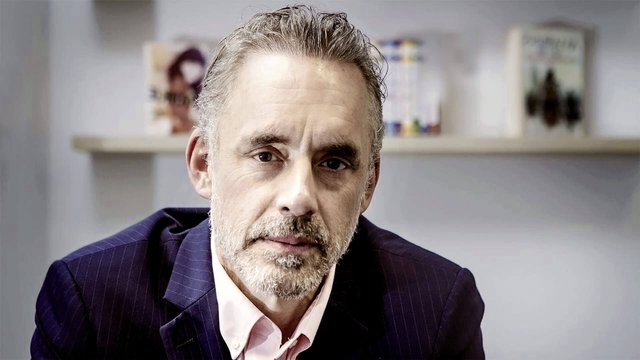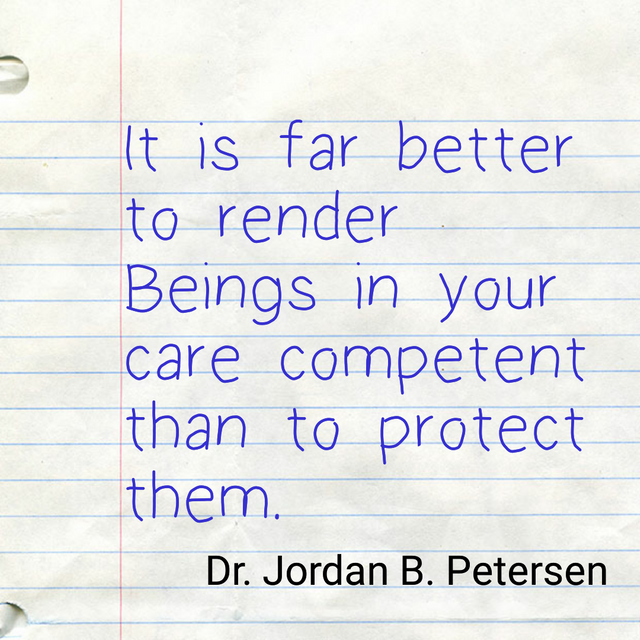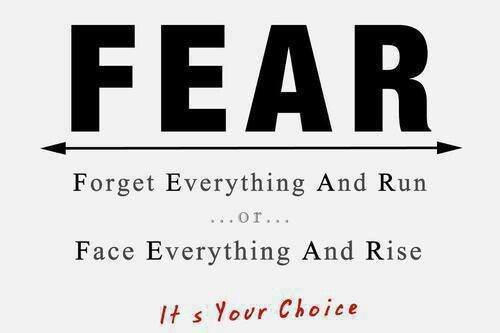
If you don't know Jordan B. Peterson, he is a Canadian professor of Psychology, at University of Toronto, who became infamous for standing against Canadian Bill C-16, legislation that "compels" speech around gender pronouns. He drew severe criticism for saying once this was law he would refuse to abide it.
Critics called him prejudicial but he defended his position on the grounds the law was an unprecedented governmental infringement upon free speech, which necessitated defiance.
12 Rules for Life: An Antidote to Chaos
I recently enjoyed the monster hit, 12 Rules for Life: An Antidote to Chaos, by Dr. Jordan B. Petersen, and I found it encouraging and challenging and so decided to share a few of my favourite points from the text with you here.
I plan to share the points as a blog series, not intended to summarize the book but rather to share my thoughts on the philosophy proscribed therein, and my reactions to those in the hopes to start an interesting discourse on what I consider some deeply meaningful ideas such as: What does it mean to love your children, and lead them well?
What does it mean to love and lead our children well?
According to Peterson the answer has something to do with our willingness to expose our children to pain, loss, discomfort, failure, and challenge. He argues that life is suffering and we do ourselves and our loved ones a disservice by denying that truth.

This is a quote from the book 12 Rules to Life: An Antidote to Chaos, and Peterson explains it by adding:
"How could the nature of man ever reach its full potential without challenge and danger? How dull and contemptible would we become if there was no longer reason to pay attention?"
On the face of it, a quote like this might seem natural, you need challenges to grow, and being protected from all danger means protection from all challenges, and therefore stunted growth. But despite its simplicity and the clear truth of such a statement I would argue that we do not usually live like we believe this idea, we may say its obvious and true, we may say we want to grow, but do we seek challenge and danger? Often I know I don't. And moreover, do we thrust our children into challenge? Into danger? I think almost universally not.
Do we seek Personal Growth? Not often enough.
The question reminds me of a men's retreat I went on with my church a year ago, and I was talking with some friends about raising kids, and we were talking about keeping them safe, and picking the right schools, and it crossed my mind, what is the "right" school? The one centred in the rich neighborhood? The one GPA scores are highest? I'll be the first to admit it scares me say this, but I really think not.

My Prayer & Fear of Growth:
I have two daughters and I often pray for their safety and joy, but I also pray that they would grow into women that serve Jesus. But it is important to understand that praying for God to use you, is NOT a safe prayer!
What this prayer means to me is that they would love people, even those that hate them, that they would serve the poor and needy, that they would seek knowledge and wisdom while denying pride and self, seeking to make this world a brighter place through every action and word.
These hopes become scary when you acknowledge the truth that the best way to seek those goals is through NOT seeking "safety", but in fact, that when I pray for their growth I am praying for their challenge, difficulty and trial.

This is where Peterson's quote comes in, "It is far better to render beings in your care competent than to protect them."
We love people by encouraging them to be the best they can be, by challenging them to grow, not by leaving them to their stagnation. It is love to aid one another at becoming what we were made to be, light and salt of the world.
We either equip our kids for life, or keep them safe, not BOTH:
When we want to equip our children I think it behooves us to remember this quote, and the discussion I laid out above. Yes I want my children to be safe, and have joy, but the world is not all cotton candy and sunshine. Challenge will come whether you prepare or not, and so you'd better prepare. How can we prepare them if we hide them from difficulty, and pain? I do not believe we can.
I am not advocating throwing your kids in the emotional deep end, denying them your love, leaving them to sleep in the streets or even wishing challenge upon them, but I am saying we should not bubble wrap our babies.
We should assess the stakes of any given situation, and if the stakes are low enough, let them run the risk of losing, metaphorically speaking that is.
So if they are on the playground and they want to climb some new high structure, let them try, be aware they may fall and ask whether risk is life threatening or not, if not, let them risk falling. This approach can cross borders into social interactions, physical play, intellectual or moral responsibilities, etc.
Failure is Training for Success:

Conclusion:
In everything our children do, we should ask whether failure will crush them, and if so mitigate that risk, but if not, let them risk failure, because without exposure to failure, one cannot grow. Always remember, you cannot make the world safe, and one day you not be at their side, so better to make your children capable of overcoming difficulty on their own, rather than overcoming it for them.
I believe this approach is for the best way to empower our children to become their best self, but its not an easy path. But who ever said life was easy, or even that it should be? This is why I argue Peterson got it right when he wrote:
"It is far better to render Beings in your care competent than to protect them."
Comments & Questions?
I hope you enjoyed the blog post today, as I said I will touch on several other important points from Peterson's book, because I felt the topics were timely and important. What do you think about today's topic? Do you disagree with anything I said, or did anything strike a chord? I'd love to hear your thoughts, either way, below in the comments section.
Thank you very much for your time and attention, I hope you have an amazing day.

Hello @ infidel1258 I think an excellent topic, that many parents do not know how to act in terms of the education of their children, one of the most important things:
The communication, dialogue, understanding.
Let him experiment even if he is wrong.
Limits and discipline, without threats. So that in this way you feel at the right level and achieve everything that is proposed in life.
Downvoting a post can decrease pending rewards and make it less visible. Common reasons:
Submit
Thank you for your good advice, it is true for all of us parents, that sometimes we get blind and act in the wrong way.
Downvoting a post can decrease pending rewards and make it less visible. Common reasons:
Submit
hello friend, excellent your publication, really all those tips will help us a lot when it comes time to become parents, shows us that communication is paramount, we must never act on impulse but we must set limits and be strict when the situation requires it but without exaggeration. Thank you very much for your good advice .. !!!
Downvoting a post can decrease pending rewards and make it less visible. Common reasons:
Submit